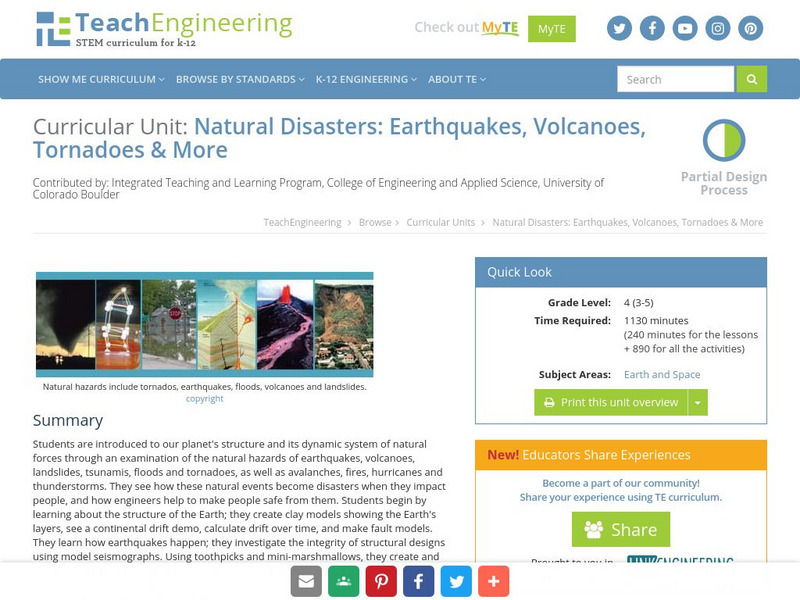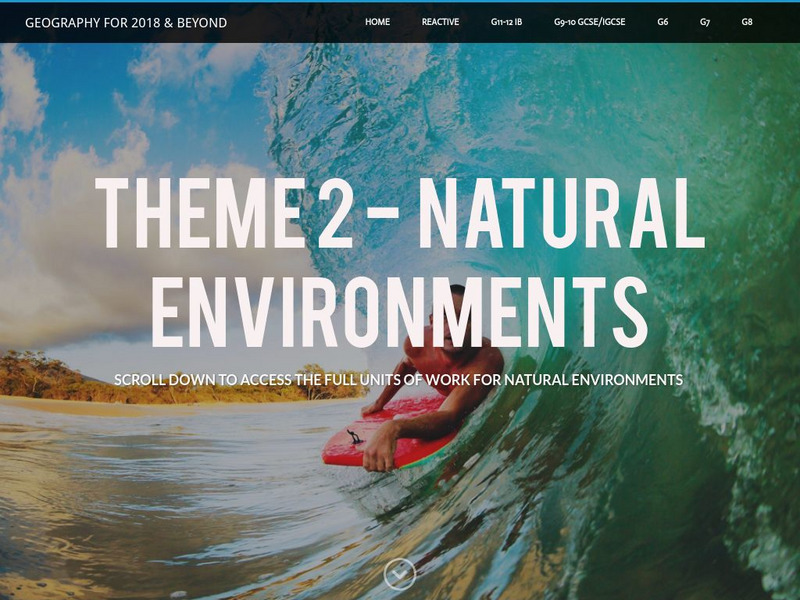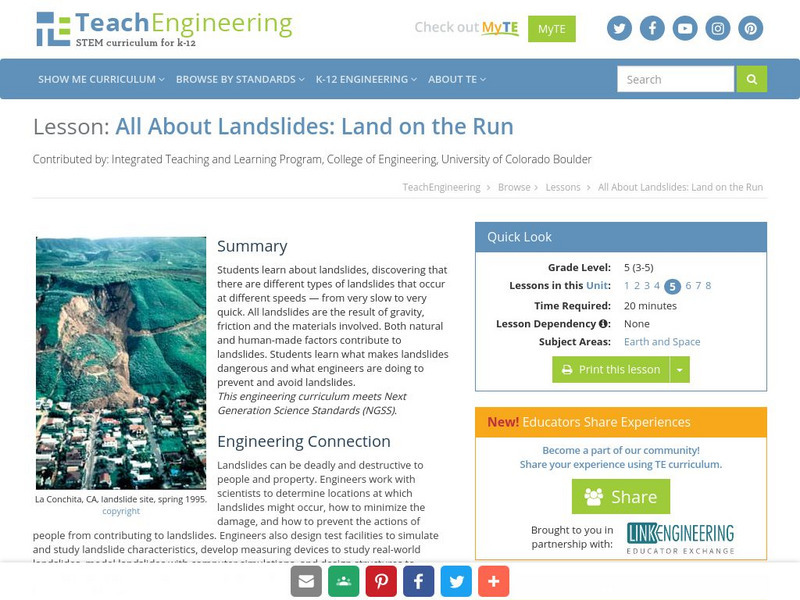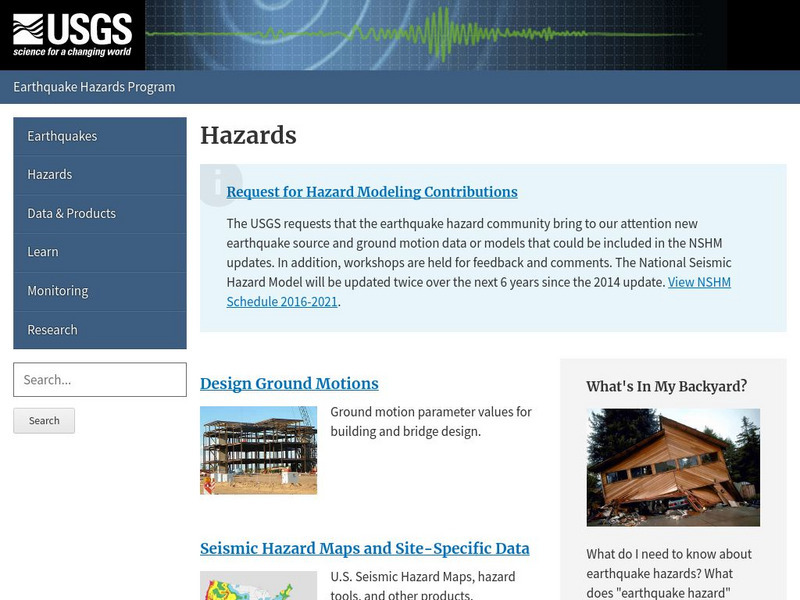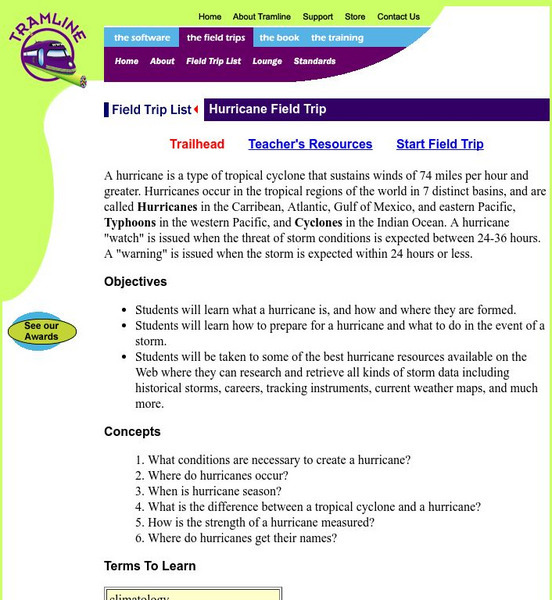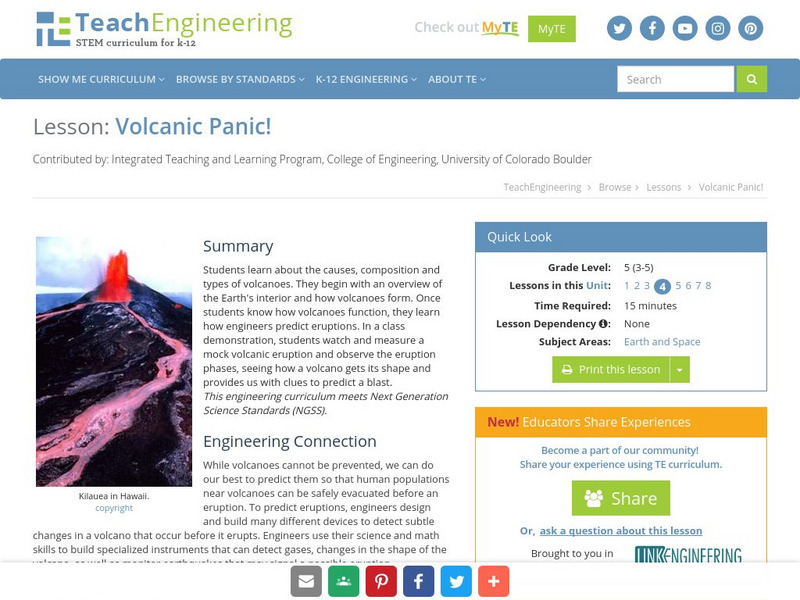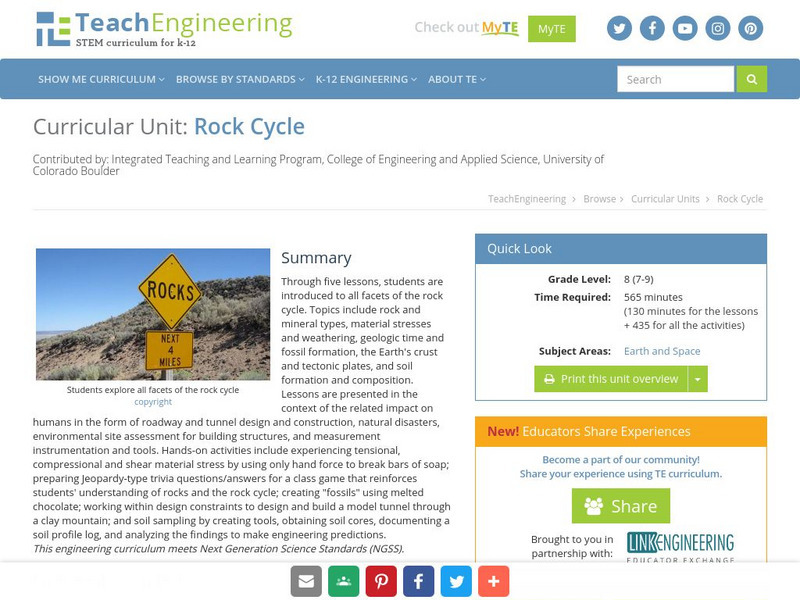Science Struck
Science Struck: A Complete List of Natural Disasters
Explains what a natural disaster is and provides a list of every type along with a short description of each.
The Field Museum
Field Museum: Exhibits: Nature Unleashed: Inside Natural Disasters
Discover the true powers of Mother Nature through this vivid collection of research which delves into the causes of natural disasters and the impacts on those affected.
CPALMS
Florida State University Cpalms: Florida Students: Natural Disasters
Enrich studying natural disasters like hurricanes and tornadoes. Know how to identify several types of natural disasters that occur in Florida, and describe how these disasters can affect people living there.
TeachEngineering
Teach Engineering: Natural Disasters
Students are introduced to our planet's structure and its dynamic system of natural forces through an examination of the natural hazards of earthquakes, volcanoes, landslides, tsunamis, floods and tornados, as well as avalanches, fires,...
Read Works
Read Works: Preparing for a Disaster
[Free Registration/Login Required] An informational text about how to stay safe during different types of natural disasters. A question sheet is available to help students build skills in reading comprehension.
Geographypods
Geographypods: Theme 2: Natural Environments
A rich collection of highly engaging learning modules on topics related to the natural environment. Covers four main areas - plate tectonics, forms and processes, weather and climate, and rainforest and desert. Within each of these,...
TeachEngineering
Teach Engineering: Naturally Disastrous
Students are introduced to natural disasters, and learn the difference between natural hazards and natural disasters. They discover the many types of natural hazards - avalanche, earthquake, flood, forest fire, hurricane, landslide,...
TeachEngineering
Teach Engineering: Survive That Tsunami!
Students use a table-top-sized tsunami generator to observe the formation and devastation of a tsunami. They see how a tsunami moves across the ocean and what happens when it reaches the continental shelf. Students make villages of model...
TeachEngineering
Teach Engineering: Land on the Run
Students learn about landslides, discovering that there are different types of landslides that occur at different speeds - from very slow to very quick. All landslides are the result of gravity, friction and the materials involved. Both...
National Weather Service
National Weather Service: Weather Fatality, Injury and Damage Statistics
Web site that contains detailed statistics involving natural disasters by year and type of disaster. Statistics are available in .pdf format.
NOAA
Noaa: Tornadoes, Nature's Most Violent Storms
This page, put out by the National Weather Service, thoroughly explains the causes and types of tornadoes. Tornado safety is covered in the form of warning signs and what you can do to stay safe both in school and at home. The full...
Alabama Learning Exchange
Alex: Are You Prepared?
Natural disasters come in many different forms. In order to be better prepared, students have to know the different types of disasters. In this lesson students will research natural disasters in order to create a brochure highlighting an...
TeachEngineering
Teach Engineering: Rock Solid
Rocks cover the earth's surface, including what is below or near human-made structures. With rocks everywhere, breaking rocks can be hazardous and potentially disastrous to people. Students are introduced to three types of material...
Geographypods
Geographypods: Hazards and Risk Management: Vulnerability
This learning module examines people's vulnerability to hazards and disasters. It looks at the reasons people live in hazard-prone areas, what factors affect their vulnerability, and what vulnerability looks like in different types of...
TeachEngineering
Teach Engineering: Making & Breaking: The Rock Cycle
Students learn the components of the rock cycle and how rocks can change over time under the influence of weathering, erosion, pressure and heat. They learn about geotechnical engineering and the role these engineers play in the...
eSchool Today
E School Today: Your Cool Facts and Tips on Earthquakes
Explains what earthquakes are, what causes them, the different types, tsunamis that can be caused by them, and how to prepare if living in an earthquake-prone area.
US Geological Survey
Us Geological Survey: Earthquake Hazards
Find out about earthquake hazards and damage. Some of the topics are an introduction to hazards, hazard maps, soil types and damage, and recent damage caused by earthquakes.
TeachEngineering
Teach Engineering: Pump It!
Pumps are used to get drinking water to our houses every day! And in disaster situations, pumps are essential to keep flood water out. In this hands-on activity, student groups design, build, test and improve devices to pump water as if...
Tramline
Hurricane Virtual Field Trip
What conditions are necessary to create a hurricane? Where do hurricanes occur? When is hurricane season? What is the difference between a tropical cyclone and a hurricane? How is the strength of a hurricane measured? Where do hurricanes...
TeachEngineering
Teach Engineering: Tsunami Attack!
Students learn about tsunamis, discovering what causes them and what makes them so dangerous. They learn that engineers design detection and warning equipment, as well as structures that that can survive the strong wave forces. In a...
TeachEngineering
Teach Engineering: Volcanic Panic!
Students learn about the causes, composition and types of volcanoes. They begin with an overview of the Earth's interior and how volcanoes form. Once students know about how a volcano functions, they learn how engineers predict...
University of Chicago
Ten Risky Places United States
Hazards of different types affecting areas of varying size are assessed in California, Seattle, Hawaii and elsewhere.
Weather Wiz Kids
Weather Wiz Kids: Volcanos
Great resource for learning all about tornadoes. Find out how they are formed, how they erupt, the different types, and notable volcanic eruptions. Also includes safety tips, animations, and activities.
TeachEngineering
Teach Engineering: Rock Cycle
Through five lessons, students are introduced to all facets of the rock cycle. Topics include rock and mineral types, material stresses and weathering, geologic time and fossil formation, the Earth's crust and tectonic plates, and soil...



